
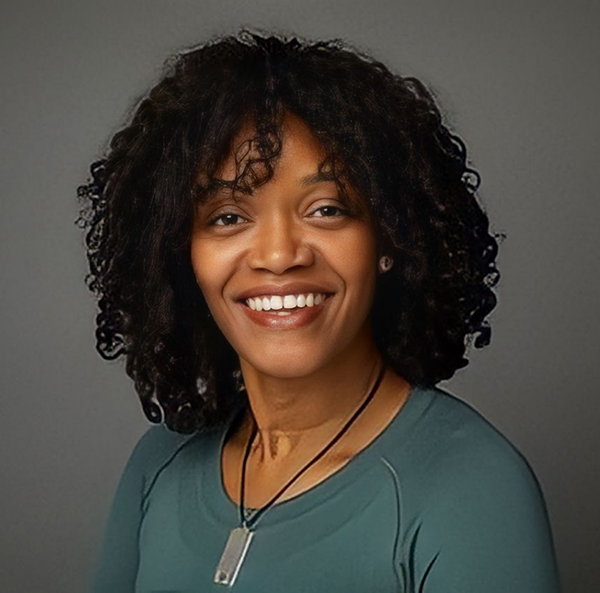
Marjorie Dejoie-Brewer, MD, experienced frequent hospitalizations and bouts of illness while growing up in New York. Despite her painful crises, her parents and health care providers did not suspect sickle cell disease (SCD), as newborn screening for SCD was not implemented in New York until 1975—four years after her birth. Her condition went undiagnosed for more than 20 years.
“My younger brother and I were both sickly, but they could never quite pinpoint the problem,” she said. “Looking back now, we wish we had known. It was certainly a challenge for my parents. But we navigated it the best that we could.”
After years of enduring debilitating symptoms, Dejoie-Brewer finally found answers during her second year at the University of Pennsylvania School of Medicine. An administrator noted that her symptoms resembled SCD and referred her to Kwame Ohene-Frempong, MD, a world-renowned physician specializing in treatment of sickle cell disease at Children’s Hospital of Philadelphia (CHOP). Dejoie-Brewer said receiving an official diagnosis helped her name the medical challenges and pain she had experienced her entire life.
“That day solved the riddle for me and my brother and confirmed I wasn’t crazy,” she said. “Many times, physicians and extended family members accused me of making it up. Although there weren’t many treatment options back then, having a diagnosis really grounds you and gives you some power to move forward, because you're no longer obsessed with trying to figure out what’s wrong with you.”
Dejoie-Brewer noted she initially tried Hydroxyurea as part of a clinical trial but unfortunately did not benefit from it. Eventually she recognized the vital role that blood transfusions would play in managing her condition. She has been receiving regular blood transfusions since 2017. “We've also had to increase my red blood cell exchange transfusions due to several complications. I'm up to eight units a month, but it is saving my life,” she said.
Since her diagnosis, Dejoie-Brewer has set out to raise awareness about the importance of blood donations for SCD treatment. She has collaborated with the American Red Cross and other organizations to provide education on the process and encourage donations among people of color.
“We know that the best match is from individuals who are from your same background, heritage and lineage,” she said. “I'm so appreciative of every single donor, so I am big on blood donations and rallying people to give.”
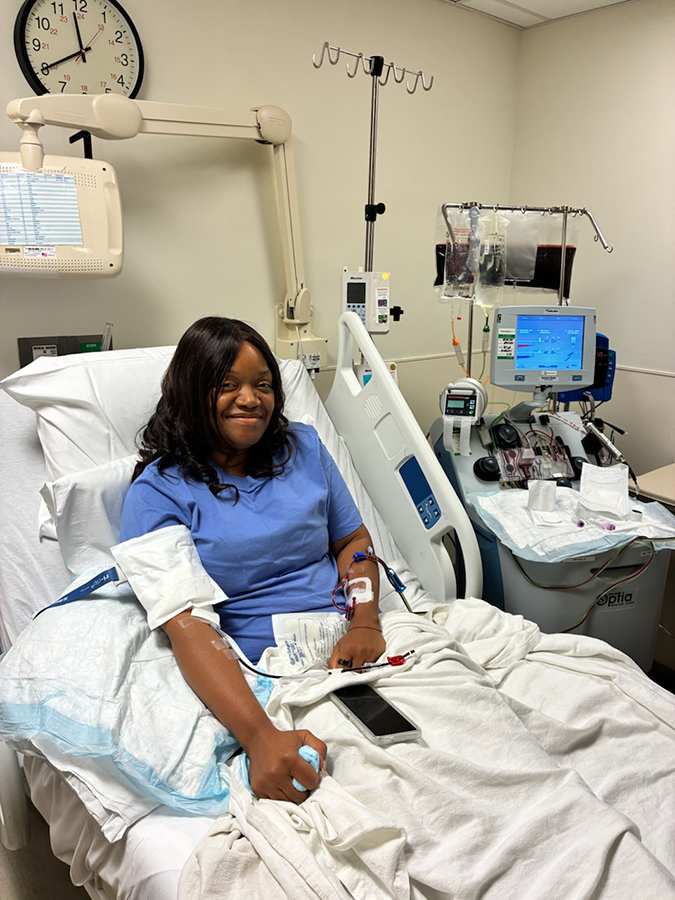
“The entire team wrapped their arms around me and really championed me. Whenever I was admitted, they would sit by my side until my family arrived from New York and have conference calls with my parents to let them know, ‘We've got her. We’re going to help her,’” she recalled. “Getting diagnosed earlier would have been great, but everything lined up the way it was supposed to. I always say if there's anywhere that I had to get diagnosed, I was in the best place.”
In 1998, Dejoie-Brewer leveraged her background in physical and rehabilitation medicine to launch a private holistic practice focused on precision medicine. Her approach considered patients’ social determinants and lifestyle factors to develop a complete picture of their health.
“My concept was ‘how do you get medical care to individuals in the way that they need it, with the specificities that their disease process demands,’ as opposed to defaulting to what is usually prescribed to the general population.”
In addition to her medical career, Dejoie-Brewer operated a brick-and-mortar fitness studio for eight years in Philadelphia, offering wellness programs and holistic treatment to help patients rebuild their lives.
“Warriors often experience what I call the interruption cycle every time we have a sickle cell crisis. We get completely knocked off our feet,” she said. “I really wanted to empower people and get them back to feeling like themselves, because I understand that desire. We all want to feel whole and experience our lives without the limitations that our illness places upon us. We chase a level of normalcy and a rhythm that is our own.”
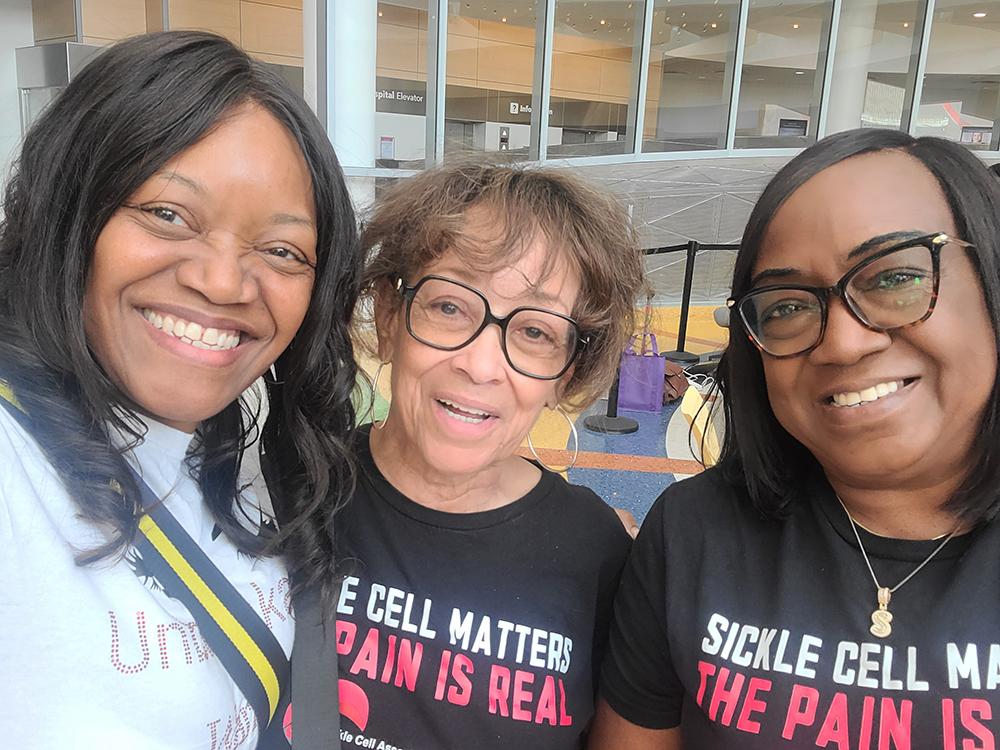
Dejoie-Brewer has dedicated her career to amplifying the patient’s voice and bringing their needs to the forefront. She noted that although late diagnoses are less common in the United States due to universal newborn screening, many people still go undiagnosed globally. Her efforts include improving newborn screening and access to new treatments, as well as patient advocacy. She has held several leadership positions within the sickle cell space, including the medical director of the Sickle Cell Disease Association of Delaware, research clinician for hydroxyurea education at CHOP, global medical director at Vertex Pharmaceuticals and patient engagement lead in rare disease initiatives at Pfizer.
“I loved sharing my message with individuals and larger audiences because it kept me rooted in the community,” she said. “People are more receptive to listening when they can talk to someone they relate to, and engage in a real, respectful conversation that meets them where they are.”
In her current role as the director of patient strategy and advocacy at Fulcrum Therapeutics, she stated her mission is to bridge the gap between scientific information and patient understanding. She described the most rewarding aspects of her new role as engaging directly with the community and designing programs to raise awareness.
“I love science, but more than that, I’m passionate about making it digestible,” she said. “Patients and families deserve clear explanations. My goal is to be the bridge so that the light bulb goes off for everyone in the room, especially the patient. The focus should always be on the patients and ensuring they truly understand what’s being shared. We need to meet them where they're at, or we're not providing good health care.”
Dejoie-Brewer spoke to AABB News about the ongoing challenges facing patients with SCD, highlighting emergency room treatment, pain management and access to comprehensive holistic care and psychological support. “It pains me to think that warriors still feel like they have to live in the shadows and not talk about the illness that they have and carry this weight that affects their physical and mental health,” she said. “They've built defenses over their lives to cope, but they haven't been given the tools to deal and heal. We're just beginning to open up that conversation.”
The real healing, she added, happens once you leave the hospital after the acute phase of a crisis is controlled. “I would love a bigger spotlight on mental health and wellness, because we'll have more resilient, whole and happier warriors,” she said. “All we want to do is live a full life like everybody else does. Everyone deserves that opportunity, wherever you're from and whatever disease you have. No one should get the short end of the stick.”
"The focus should always be on the patients and ensuring they truly understand what’s being shared. We need to meet them where they're at, or we're not providing good health care."
She noted that the current health care landscape poses significant threats to groundbreaking sickle cell research and programs. “We're in a time where funding is being taken away from the projects that are uplifting and helping individuals,” she said. “My short-term hope is that SCD does not lose the funding it has fought for over the past 10 years to create all these amazing programs.”
Dejoie-Brewer expressed hope for a future where people with rare diseases are properly integrated into the health care system, with equal access to specialized care and treatment. No one should have to run from one hospital to the next to get the right care or find the right physician for them, she added.
“My hope is that individuals keep their foot on the gas and keep advocating because real change can begin with one voice in the right room inspiring action,” she told AABB News. “As a society, we should be able to provide that specific care for all individuals. I want that playing field to be leveled for warriors. We are beautiful people and so deserving of that opportunity that I think is a God-given right, but it gets stolen. And I'm going to snatch it back.”
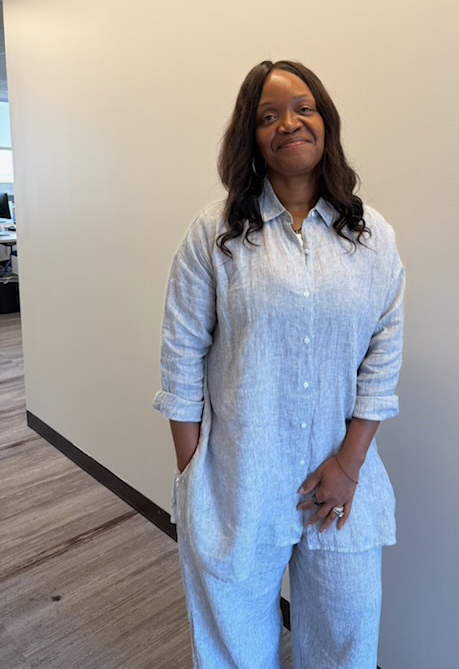
Her experience as both a sickle cell warrior and physician gives her a unique dual perspective that helps her connect with the sickle cell community and champion a patient-centered approach that meets their needs.
“I'm a specific type of provider because I know the health care system from many angles that many physicians have not experienced, and I bring that knowledge to the table when I'm helping patients and their families,” Dejoie-Brewer said. “Had it not been for my disease, I might not have had this specific perspective, and therefore not have been able to build the career that I have right now and the amazing community I am blessed to be part of.”
That I have been born with an undeniable superpower. This disease process has given me a gift of being able to be resilient and navigate situations that I think other people would cower at. But somehow, God thought I could handle it, and it has taught me how to face issues, problems, or challenges head-on.
It has also taught me compassion in a way that most people spend their lives trying to figure out and never do. I am able to receive what others are trying to share and listen to them in a way that is very empathetic. Instead of providing solutions, I try to hold space for them when they need it, which I think is extremely challenging for people to do. It's hard to sit with someone's pain, but a lot of times, people just need to know they're not alone.
SCD is very challenging, and it has tried to break me, but it's also made me stronger. I'm not about to break. We have work to do.
And the realization that it does not have me—I have it—is something that I continue to learn every day.
—Marjorie Dejoie-Brewer, MD
PREVIOUS STORY
President's Message: Advancing Transfusion CareBACK TO ISSUE
September 2025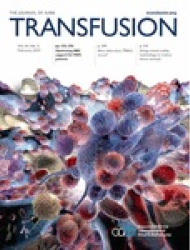
Transfusion is AABB’s scholarly, peer-reviewed monthly journal, publishing the latest on technological advances, clinical research and controversial issues related to transfusion medicine, blood banking, biotherapies and tissue transplantation. Access of Transfusion is free to all AABB members.
Learn More About Transfusion Journal
Keep abreast of what's happening in the field of biotherapies with CellSource - AABB's monthly update on the latest biotherapies news.
To submit news about the blood and biotherapies field to AABB, please email news@aabb.org.
President
Meghan Delaney, DO, MPH
Chief Executive Officer
Debra Ben Avram, FASAE, CAE
Chief Communications and Engagement Officer
Julia Zimmerman
Director of Marketing and Communications
Jay Lewis, MPH
Managing Editor
Kendra Y. Mims, MFA
Senior Communications Manager
Drew Case
AABB News
(ISSN 1523939X) is published monthly, except for the combined November/December issue for the members of AABB; 4550 Montgomery Avenue; Suite 700 North Tower; Bethesda, MD 20814.
AABB is an international, not-for-profit association representing individuals and institutions involved in transfusion medicine, cellular therapies and patient blood management. The association is committed to improving health by developing and delivering standards, accreditation and educational programs that focus on optimizing patient and donor care and safety.
+1.301.907.6977
Email: news@aabb.org
Website: www.aabb.org
Copyright 2025 by AABB.
Views and opinions expressed in AABB News are not necessarily endorsed by AABB unless expressly stated.
Notice to Copiers: Reproduction in whole or part is strictly prohibited unless written permission has been granted by the publisher. AABB members need not obtain prior permission if proper credit is given.
